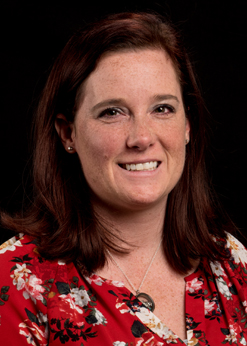To put it simply, the last few years have been difficult. The level of stress, hard decisions, and anxiety for both employers and their staff has been exceptional. Employers have had to make so many hard decisions…
- Can we function working from home and will we lose all our staff when we ask them to come back?
- How do we navigate a dangerous virus and keep staff safe?
- Should we enforce masks?
- How do we connect with our team when we can’t see them, and how do we handle in-person meetings?
- Can our staff handle the extra workload created from pivoting meetings to virtual or hybrid?
- How much stress and anxiety can we remove from our team’s shoulders?
- How do we bring on a new team member and train them well from a remote location?
- At what point is too much, too much?
It is important to remember that a company is not just the employer. Our team members have had to worry about keeping themselves, their family, and friends safe. They have had to navigate learning a new position and a new company from afar. They have been served as full-time teachers while working 40+ hour work weeks. They have seen increased workloads and the deaths of loved ones. They have pivoted every time we have asked them to. They have worked long days, they have cried when no one was looking, and they fought off anxiety and depression while balancing their home and work life.
Parthenon and our staff have weathered these hard decisions. So, what has leadership done to help our staff and make things easier. We have shifted roles and responsibilities where we can. We have reached out and asked how we can help. Most importantly, we have reminded ourselves these are not just our staff, they are someone we love and care about. They are real, not robots.
So how can we promote physical, mental, and professional growth? What team growth strategies has Parthenon learned over the last few years to support productivity and happiness amidst chaos?
- Get the right people in the right seats on the right bus. Parthenon uses Culture Index to assist in hiring new staff. This allows us to hire using their experience, but also allows us to see how they will interact as a team. We can glimpse their behavioral strengths so that we can better balance the strengths of the team. Do you have someone that is very innovative but not detailed? We can find someone detail-oriented to balance them out.
- Check In. We have learned to make sure we are checking in, whether in-person or remote. We perform career growth interviews with our staff to determine what motivates them, what they are passionate about, where they want to go in the company, and what we can do to make things easier for them. If a staff member seems to be struggling, we ask how we can help.
- Mentorship. From the moment a staff member is hired, they are assigned a supervisor and a mentor. The mentor meets with the mentee 1-2 times a week for the first 90 days. This mentor is not there to teach the mentee, but to answer questions and get to know the new team member.
- Structured training schedules for new hires. For the first two weeks the new hire member has a structured schedule, including connecting with key staff members they will need to know, training topics from expert instructors, scheduled time to review resources and training materials, and breaks. This allows us to balance knowledge, resources, and downtime so new hires learn what they need to know without being overwhelmed. When creating these schedules, we ask ourselves what they need on day one, week one, month one, and year one.
- Keep it FUN. The world is currently depressing, but we don’t have to be. We schedule fun events such as remote coffee hours to connect, virtual painting sessions, themed dress up days, online trivia, etc. These events are not mandatory but give our staff a break from the required to connect with fellow staff and just have fun for a while.
- Give Grace. Rome wasn’t built in a day. New hires are not going to learn everything in the first day, week, or month. No one is perfect. While we have high expectations, we leave room for grace. We can fix anything together.
- Everyone has a voice. Solutions should not just come from the top. We collaborate as a team and all ideas are welcome. We host innovation hours to allow our staff to voice their ideas on what is working, what is not working, and what we can do differently.
- Set goals. Each new hire sets 90-day goals. Each team sets goals for what they want to accomplish this week, this month, and this year. Parthenon sets strategic goals for what we want to accomplish. Setting goals allows us to pave a path for our future.
- Set your expectations and define yourself. Who is your company? What do you want to be the best at? How can you accomplish this? What are your core values and enduring principles? What is your flywheel? What characteristics define your company DNA? Once you determine these aspects, print them and post them everywhere. When these definitions and expectations are clearly communicated, your staff can determine if their expectations align with yours. This creates a sense of fulfillment and belonging.
- Never stop learning. Knowledge is power. Your team wants to grow both personally and professionally. When you invest in your team’s knowledge and growth, they will invest in you.
- Promote diversity, equality, and inclusion. Talk is cheap. There are many courses and programs that can teach your staff DEI Initiatives and how to bring about change. Work with your team to address these and move for change.
- Recognize exceptional service. Parthenon has several anonymous avenues to nominate fellow staff and leadership for exceptional service. These nominations are posted on our social media, sent via email, and recognized in our biweekly newsletters. We encourage staff to recognize their teammates and leaders for going above and beyond.







